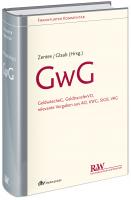Prof. Dr. Hanno Merkt, LL.M.: Corporate Governance: Dialog zwischen EU-Harmonisierung und dem Gesellschaftsrecht der EU-Mitgliedstaaten
It is almost trivial that corporate governance since a long time is on the agenda of member state as well as European regulators. However, the way in which this dialogue takes place, the individual role of the partners and the specific content of this dialogue vary from member state to member state. The current issue of Zeitschrift für Vergleichende Rechtswissenschaft (ZVglRWiss 2/2015) is devoted to the dialogue between member state company law and EU regulatory harmonization in the area of corporate governance.This issue brings together five different views on this dialogue, seen from the United Kingdom, Austria, Italy, France and Switzerland.
From a UK perspective, Iris Chiu observesthat European corporate governance has moved from a gradual bottom-up approach which is based on comparative analysis to an approach that blends genuine European regulation into harmonized capital markets law. Post-crisis European corporate governance regulation is legitimized by public interest serving as a basis for “hard” harmonization like shareholders’ say-on-pay or shareholder engagement (stewardship concept). In that context UK has taken a role as norm-pioneer with significant influence, which is facilitated by the fact that UK regulation fits at both the macro and the micro level in other jurisdictions. In that regard, it is important to see that corporate governance can be used for extending the scope of securities regulation harmonization. However, it is unsettled if that approach is indeed favorable given the broad variety of different conditions in member states which might suggest that it is too early to harmonize the rules on shareholder engagement.
Susanne Kalss compares pre- with post-EU-harmonized corporate governance in Austria. While it is true that the European Corporate Governance debate has been an important issue on the company law agenda in Austria for the past two decades, the discussion about management and supervision of companies goes back much further to the pre-war introduction of the Stock Company Code. However, with the arrival of the European Corporate Governance movement, the discussion left the domestic context and entered a much broader European stage. All core questions of company law, like conflict of interest, the careful allocation of responsibilities and the enforcement of corresponding duties are placed in a new context, a development which ends up in the European Union becoming the major driver of the Austrian corporate governance system.
From an Italian perspective Marco Ventoruzzo sheds some light on the interaction between member state corporate law regimes and the role of European corporate law. It appears that regulatory competition and harmonization are not mutually exclusive, and actually can stimulate each other. However, when legal systems are too different, regulatory competition might become more difficult. Difficulties to reconcile different rules, uncertainties in assessing effects of foreign rules, and the lack of shared legal culture can limit the circulation of ideas and the competition of jurisdictions. The paper concludes that legal systems on one side have to be sufficiently similar in order to make comparison possible and competition work and on the other side to be sufficiently different to have distinct competitive advantages. Moreover, as can be illustrated by the introduction of multi voting shares in Italy, a bottom–up regulatory competition in which legislators follow each other has deeply affected the regulation of European Corporate Governance and might turn out in the long run to be more forceful and influential than the traditional top-down approach of EU harmonization. Directors’ liability or the law of corporate groups might be the next topics on that agenda.
Pierre-Henri Conac’s report on the development in France comes to the somewhat surprising conclusion that France is not as favorable to European company law as it could be expected from a founding EU Member State which has a coherent corporate vision for Europe. While it supports the concept that considers EU company law only as an alternative to existing member state company laws, France is reluctant towards granting freedom of movement for companies because it fears regulatory competition, loss of tax base and interference with creditor protection. This has caused the French legislature to be generally more willing to accept European concepts in the area of cross-border activities than in the area of purely domestic affairs. The paper concludes that in order to regain support in France, European company law would need more scholarly support among academia to make the convincing case for positive benefits that European harmonization has brought to France and should continue to do so in the future.
Finally, it is interesting to see that EU corporate governance regulation plays an important role even outside of the sphere of EU member state jurisdictions, as Peter V. Kunz concludes in his contribution on Swiss corporate law. In general, EU law has today a dominant role for Switzerland, entering Swiss law on various paths (international agreements, internationally recognized standards, direct implementation, interpretation etc.). This has brought Switzerland to a level-playing field and in the leading group of jurisdictions in the area of modern corporate governance lawmaking, with some regulations that go far beyond what we see in other countries, like the general meeting voting requirement on total amounts of remuneration or disclosure by pension funds.
The lesson we can learn from all of these observations is that the EU rather imposing top-down its own “European” regulations probably should pay more attention to domestic member state laws as well as to law modernization outside of the EU in searching the right way of corporate governance law reform. In other words: Today, comparative corporate governance and comparative law in general appear to be more important than ever in order to improve the law. It is time to turn the monologue back into a dialogue.
Prof. Dr. Hanno Merkt, LL.M. (Univ. of Chicago) ist Direktor des Instituts für Ausländisches und Internationales Privatrecht der Universität Freiburg.




